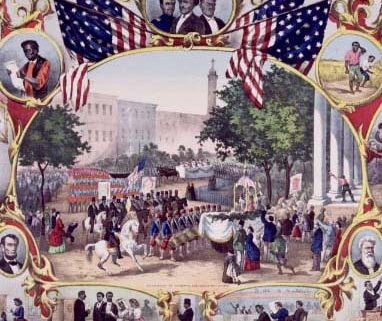
In the mid-nineteeth century the old political party system fell apart and a new one arose. Slavery was the issue, freedom the cause that led many northerners in the 1850s to seek a new political home in the Republican Party, an unlikely mélange of former Whigs, Democrats, nativists, free soilers, and others who agreed only on “no further extension of slavery into the territories.” When southerners seceded from the Union rather than accept a Republican victory in 1860, civil war came. The new party became the “majority” party, for the moment, as it waged war to save the Union and, then, to end slavery. Republicans also enacted legislation that expanded freedom by opening the West and providing land and learning for its settlers. Defining freedom in political, economic, and even social terms became the great challenge of the Republican Party, and the country, during Reconstruction after the war. Both blacks and women demanded inclusion in the reconstructed nation. By 1872 the first generation of Republicans was passing from the scene, weary of wrangling over issues of who got the franchise and the rewards of office. A new generation assumed the stage dedicated to building the nation and the party in support of commerce and industry rather than Reconstruction.
Curated by Phillip Lapsansky, 2000.


